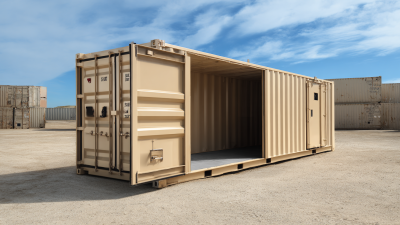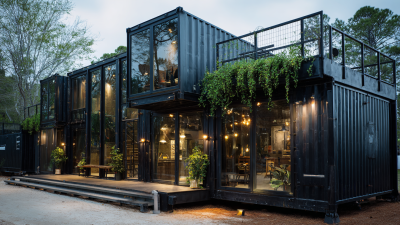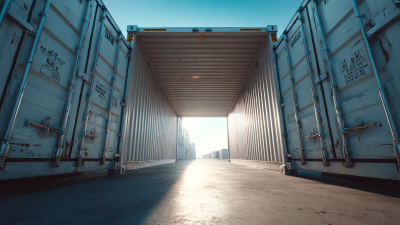Revolutionizing Food Storage with Shipping Container Freezers for Sustainable Business Solutions
In an era where sustainable business solutions are paramount, the use of shipping container freezers has emerged as a revolutionary approach to food storage and preservation. According to a report by MarketsandMarkets, the global cold chain market is expected to reach $668.9 billion by 2025, with advancements in refrigeration technology playing a crucial role in this growth. Shipping container freezers not only provide a cost-effective means of maintaining optimal temperatures for perishable goods but also offer mobility and flexibility that traditional cold storage facilities lack. This innovative solution significantly reduces food waste and enhances the efficiency of supply chains, aligning with the increasing demand for sustainability in the food industry. By leveraging shipping container freezers, businesses can meet both and regulatory requirements, ultimately positioning themselves as leaders in the transition to a more sustainable future.
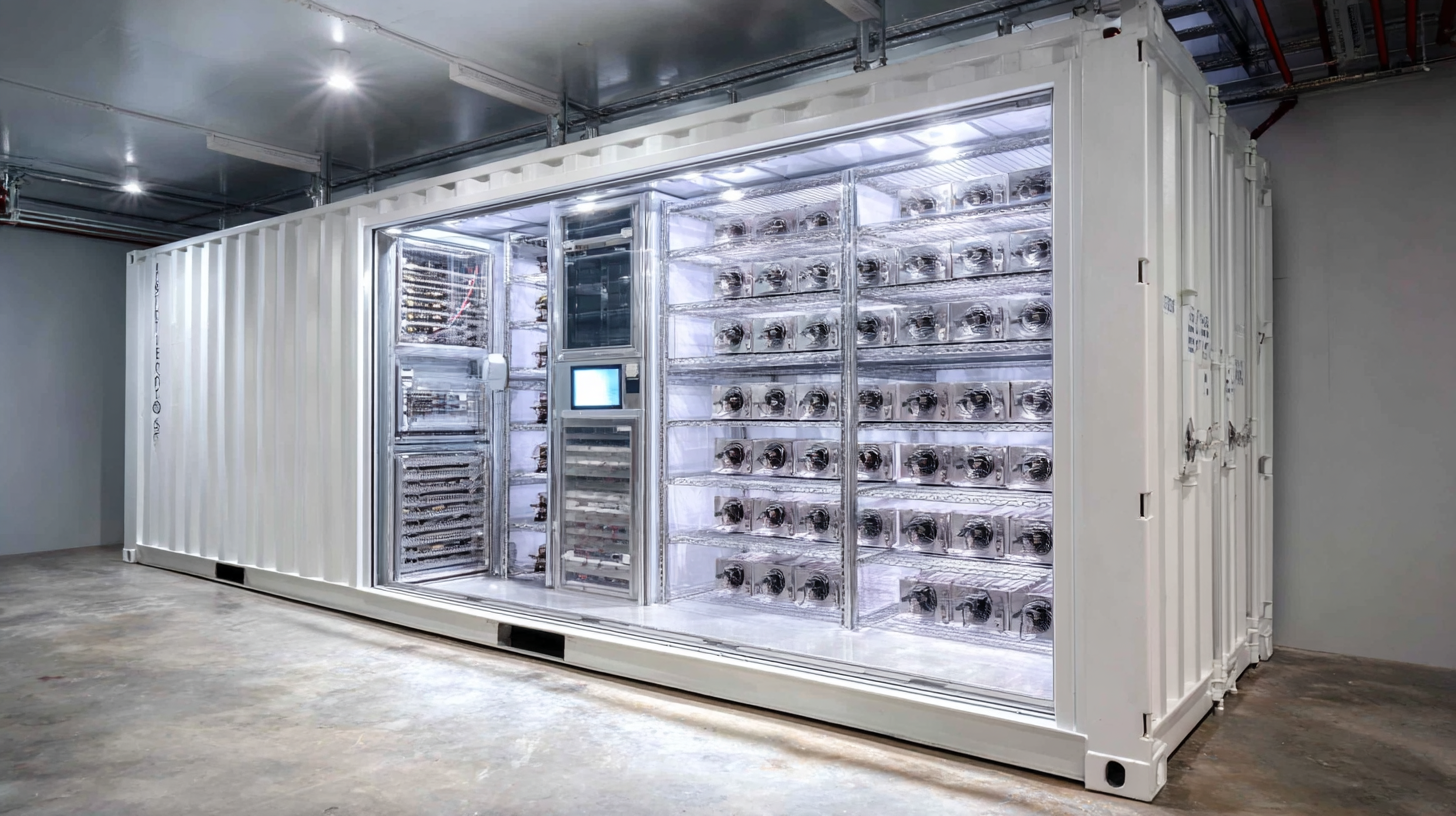
Benefits of Shipping Container Freezers for Food Storage in Sustainable Business Practices
Shipping container freezers are emerging as pivotal solutions for sustainable food storage in the modern business landscape. With global food waste estimates reaching 1.3 billion tons annually, according to the FAO, the demand for efficient storage methods is more pressing than ever. These containers not only extend the lifespan of perishable products but also enhance supply chain efficiency. By utilizing shipping container freezers, businesses can reduce energy consumption by up to 50% compared to traditional refrigeration methods, helping to lower overall operational costs while contributing to environmental sustainability.
Additionally, shipping container freezers are highly versatile, offering customizable temperature settings and mobility. This adaptability allows businesses to efficiently manage seasonal inventory fluctuations without the need for costly infrastructure investments. A 2022 report by Allied Market Research highlights that the global market for portable cold storage solutions is expected to grow at a compound annual growth rate (CAGR) of 7.6%, illustrating a clear trend towards adopting these innovative storage options.
Tips: To maximize the benefits of shipping container freezers, businesses should regularly monitor and maintain optimal temperature settings to ensure food safety. It’s also advisable to strategically plan storage layouts to minimize air circulation disruptions. Lastly, investing in energy-efficient models can further enhance sustainability efforts while reducing long-term costs.
Key Statistics on Food Waste Reduction through Container Freezing Solutions
Food waste is a pressing global issue, with approximately one-third of all food produced for human consumption lost or wasted each year, amounting to around 1.3 billion tons. This staggering statistic highlights the urgent need for innovative solutions to tackle the efficiency of food storage.
Shipping container freezers are emerging as a pivotal component in this fight, offering a versatile and sustainable approach to preserving perishable goods. According to a report by the Food and Agriculture Organization (FAO), effective cold chain management can reduce food loss by up to 80%, transforming the logistics of food storage and distribution.
The introduction of shipping container freezers not only enhances the longevity of food products but also plays a significant role in mitigating environmental impacts. A research study indicated that reducing food waste can lower greenhouse gas emissions by up to 70%. Furthermore, by expanding the availability of frozen food storage, businesses can create substantial economic benefits, with the potential for food retailers to save billions annually through improved inventory management.
Emphasizing the use of container freezing solutions can significantly contribute to sustainable business practices while addressing the critical issue of food waste on a global scale.
Innovative Technologies Enhancing Efficiency of Shipping Container Freezers
Innovative technologies are rapidly enhancing the efficiency of shipping container freezers, providing sustainable business solutions for various industries. With the global refrigerated transport market expected to reach $20.3 billion by 2026, the adoption of energy-efficient refrigeration systems in shipping containers is becoming paramount. Advanced insulation materials and smart temperature control systems are significantly reducing energy consumption, allowing businesses to cut costs while minimizing their carbon footprint.
In addition, integrating renewable energy sources, such as solar panels, into shipping containers is another game-changer. A report by the International Renewable Energy Agency has shown that solar energy can reduce operating costs by up to 50% in remote areas. This integration not only provides a reliable power source but also ensures that businesses are equipped to handle fluctuations in energy prices and availability.
**Tip:** When considering the use of shipping container freezers, assess the specific energy needs of your operation. Investing in smart monitoring devices can help in tracking energy consumption patterns and optimizing usage.
Furthermore, transitioning to modular designs allows for easier upgrades and scalability. Companies can start with one or two units and expand as demand grows, making it a flexible solution for businesses of all sizes.
**Tip:** Regular maintenance of refrigeration systems is crucial. Schedule routine checks to ensure that all components are functioning optimally, which can prolong the lifespan of your equipment and maintain efficiency.
Revolutionizing Food Storage with Shipping Container Freezers
This chart showcases the efficiency of shipping container freezers over the years, highlighting improvements in energy consumption and temperature stability.
Environmental Impact of Shipping Container Freezers versus Traditional Refrigeration
The environmental impact of shipping container freezers compared to traditional refrigeration methods is a critical consideration for businesses looking to enhance sustainability. Shipping container freezers are designed to be highly energy-efficient, utilizing superior insulation and advanced refrigerant technologies. According to a report by the International Institute of Refrigeration, conventional refrigeration systems can consume up to 30% more energy than modern refrigerated containers, significantly contributing to greenhouse gas emissions. In contrast, shipping container freezers often integrate renewable energy sources, such as solar panels, which reduce reliance on fossil fuels and decrease the carbon footprint associated with food storage.
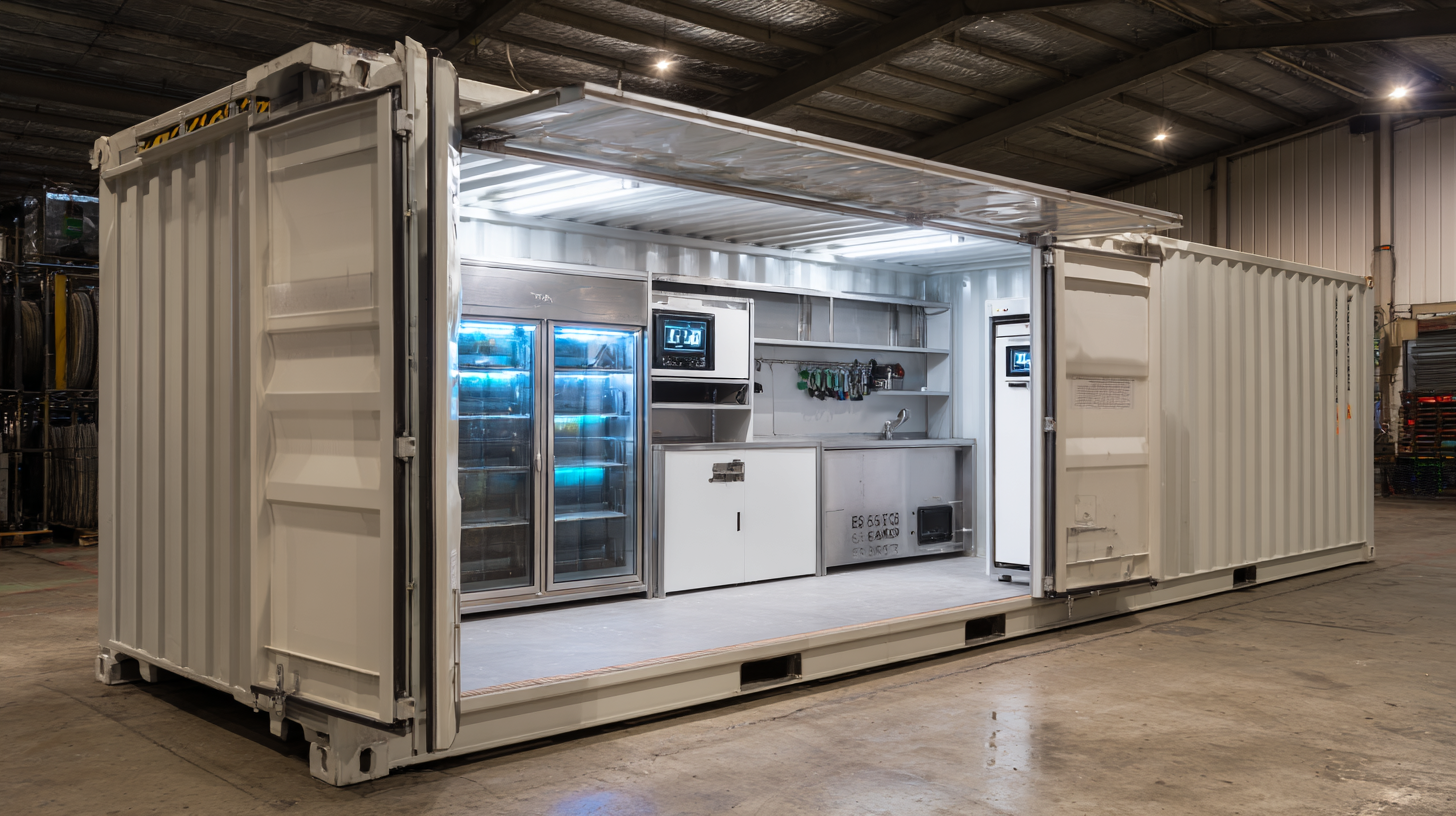
Moreover, the lifecycle analysis of shipping container freezers shows that they result in lower waste generation compared to traditional refrigeration. Research from the United Nations Environment Programme indicates that around 30% of food produced globally is wasted, often due to inadequate refrigeration. By incorporating shipping container freezers, businesses can better manage the temperature and extend the shelf life of perishable goods, ultimately leading to significant reductions in food waste. This not only supports environmental sustainability but also promotes economic efficiency by minimizing losses associated with spoiled products.
Case Studies: Successful Implementations of Shipping Container Freezers in the Food Industry
The use of shipping container freezers has emerged as a transformative solution for the food industry, particularly in enhancing sustainability and operational efficiency. Case studies illustrate how businesses have successfully implemented these innovative storage units. For instance, a farm-to-table restaurant in California transitioned to using shipping container freezers, allowing them to store fresh produce safely while minimizing food waste.
This adaptation not only preserved the quality of ingredients but also reduced their carbon footprint by eliminating the need for extensive refrigeration infrastructure.

This approach not only supports local fisheries but also aligns with sustainable practices, as it reduces energy consumption compared to traditional large-scale freezers. These case studies highlight the potential of shipping container freezers to revolutionize food storage, promoting sustainability while meeting the demands of the modern food supply chain.
Get a quote
Get a quote
Read More
Accept AllReject AllCustomise
Privacy Overview
| Cookie | Duration | Description |
|---|---|---|
| cookielawinfo-checkbox-advertisement | 1 year | Set by the GDPR Cookie Consent plugin, this cookie records the user consent for the cookies in the "Advertisement" category. |
| cookielawinfo-checkbox-analytics | 11 months | This cookie is set by GDPR Cookie Consent plugin. The cookie is used to store the user consent for the cookies in the category "Analytics". |
| cookielawinfo-checkbox-functional | 11 months | The cookie is set by GDPR cookie consent to record the user consent for the cookies in the category "Functional". |
| cookielawinfo-checkbox-necessary | 11 months | This cookie is set by GDPR Cookie Consent plugin. The cookies is used to store the user consent for the cookies in the category "Necessary". |
| cookielawinfo-checkbox-others | 11 months | This cookie is set by GDPR Cookie Consent plugin. The cookie is used to store the user consent for the cookies in the category "Other. |
| cookielawinfo-checkbox-performance | 11 months | This cookie is set by GDPR Cookie Consent plugin. The cookie is used to store the user consent for the cookies in the category "Performance". |
| CookieLawInfoConsent | 1 year | CookieYes sets this cookie to record the default button state of the corresponding category and the status of CCPA. It works only in coordination with the primary cookie. |
| viewed_cookie_policy | 11 months | The cookie is set by the GDPR Cookie Consent plugin and is used to store whether or not user has consented to the use of cookies. It does not store any personal data. |
| Cookie | Duration | Description |
|---|---|---|
| _cs_c | 1 year 1 month | The cookie is used by Content Square to save the user consent to be tracked. |
| Cookie | Duration | Description |
|---|---|---|
| _cs_id | 1 year 17 days 20 hours 13 minutes | This cookie is used to store the ContentSquare's user identifier ID. This is a persistent cookie and expires after 13 months. |
| _cs_s | 1 hour | This cookie is used to store the number of page's viewed by a visitor within the session for ContentSquare's solution. |
| _ga | 1 year 1 month 4 days | Google Analytics sets this cookie to calculate visitor, session and campaign data and track site usage for the site's analytics report. The cookie stores information anonymously and assigns a randomly generated number to recognise unique visitors. |
| _ga_* | 1 year 1 month 4 days | Google Analytics sets this cookie to store and count page views. |
| _gcl_au | 3 months | Google Tag Manager sets the cookie to experiment advertisement efficiency of websites using their services. |
| Cookie | Duration | Description |
|---|---|---|
| test_cookie | 15 minutes | doubleclick.net sets this cookie to determine if the user's browser supports cookies. |
| Cookie | Duration | Description |
|---|---|---|
| _cs_root-domain | session | Description is currently not available. |
| _cs_same_site | session | Description is currently not available. |
